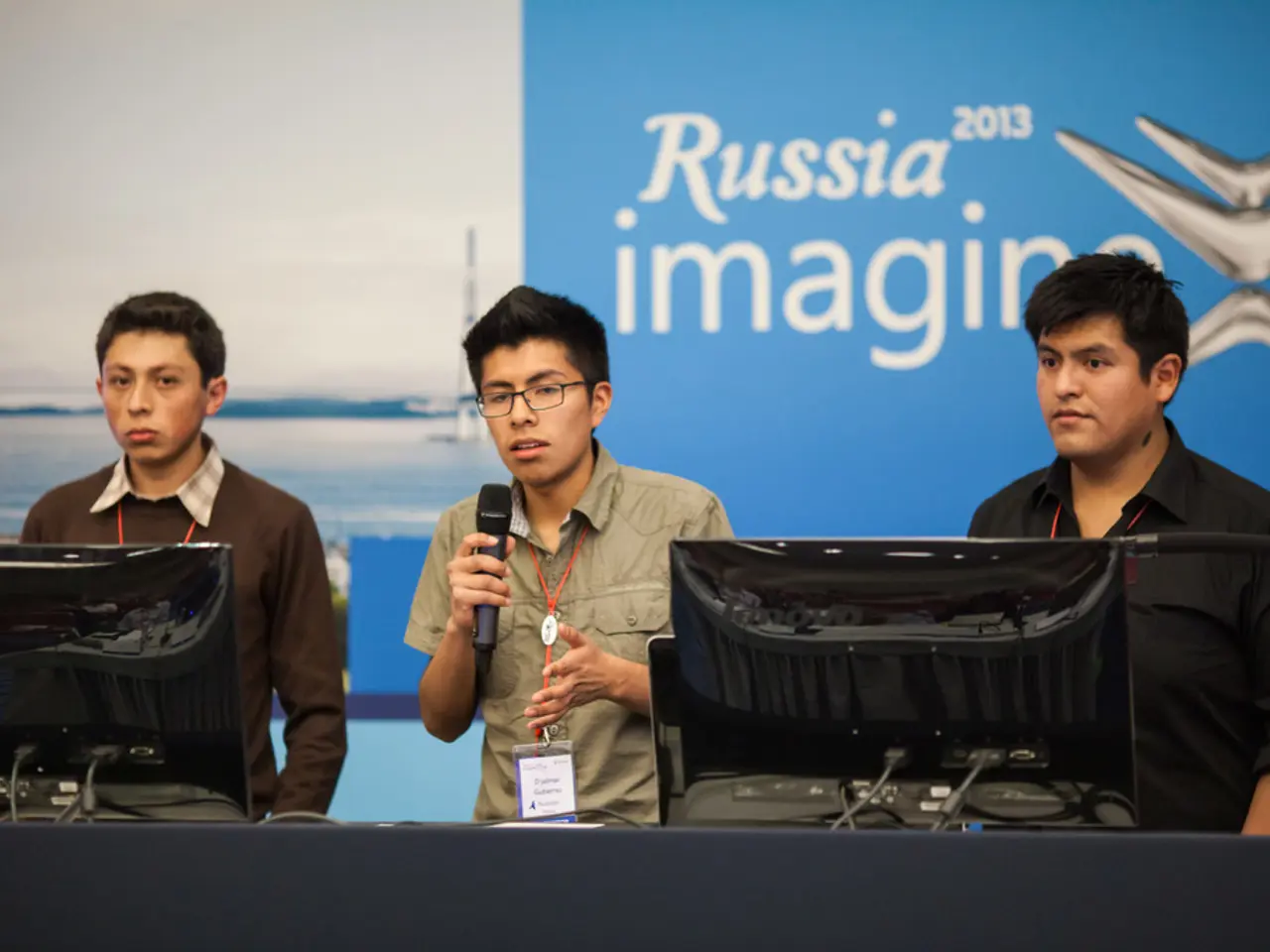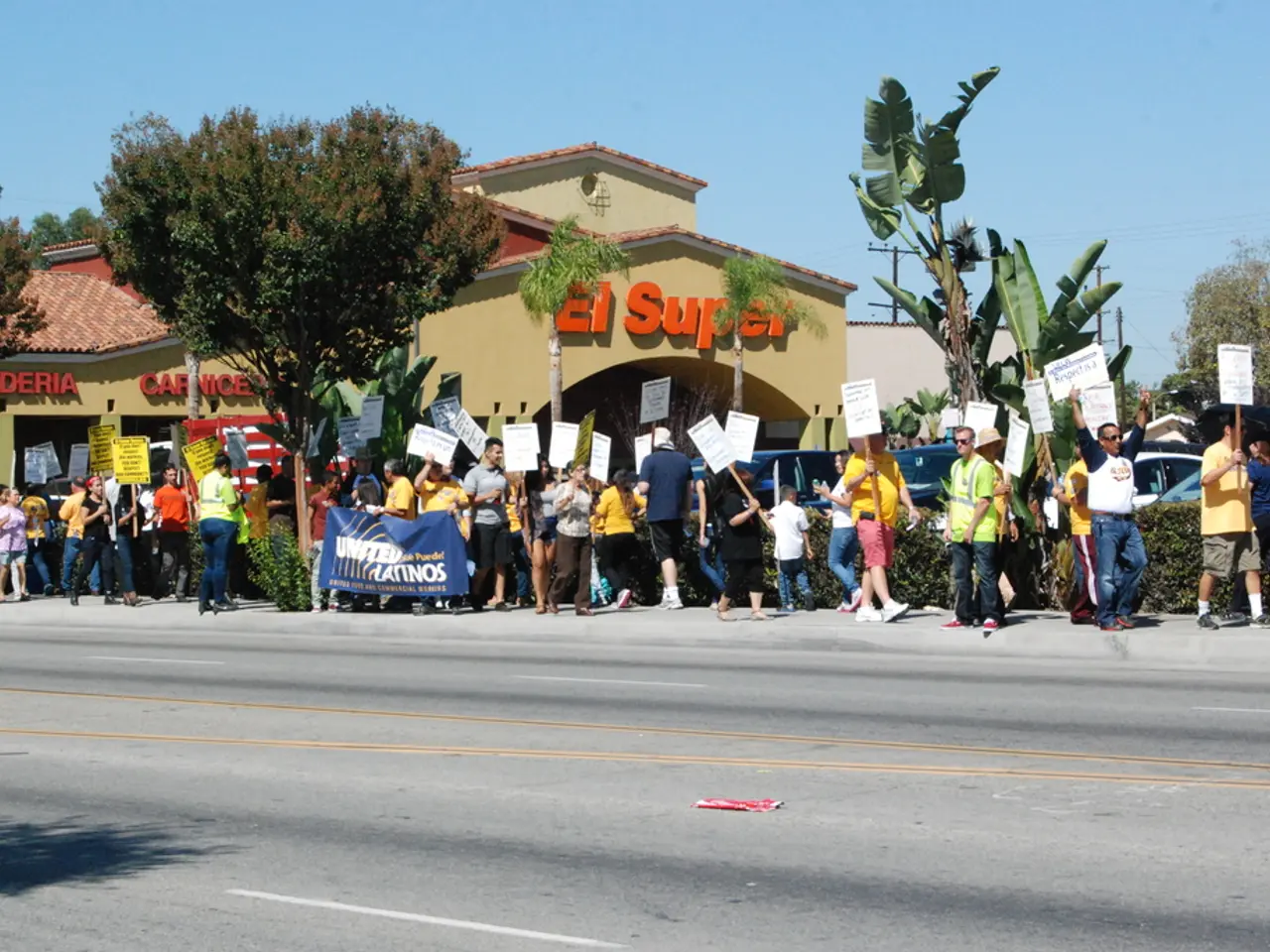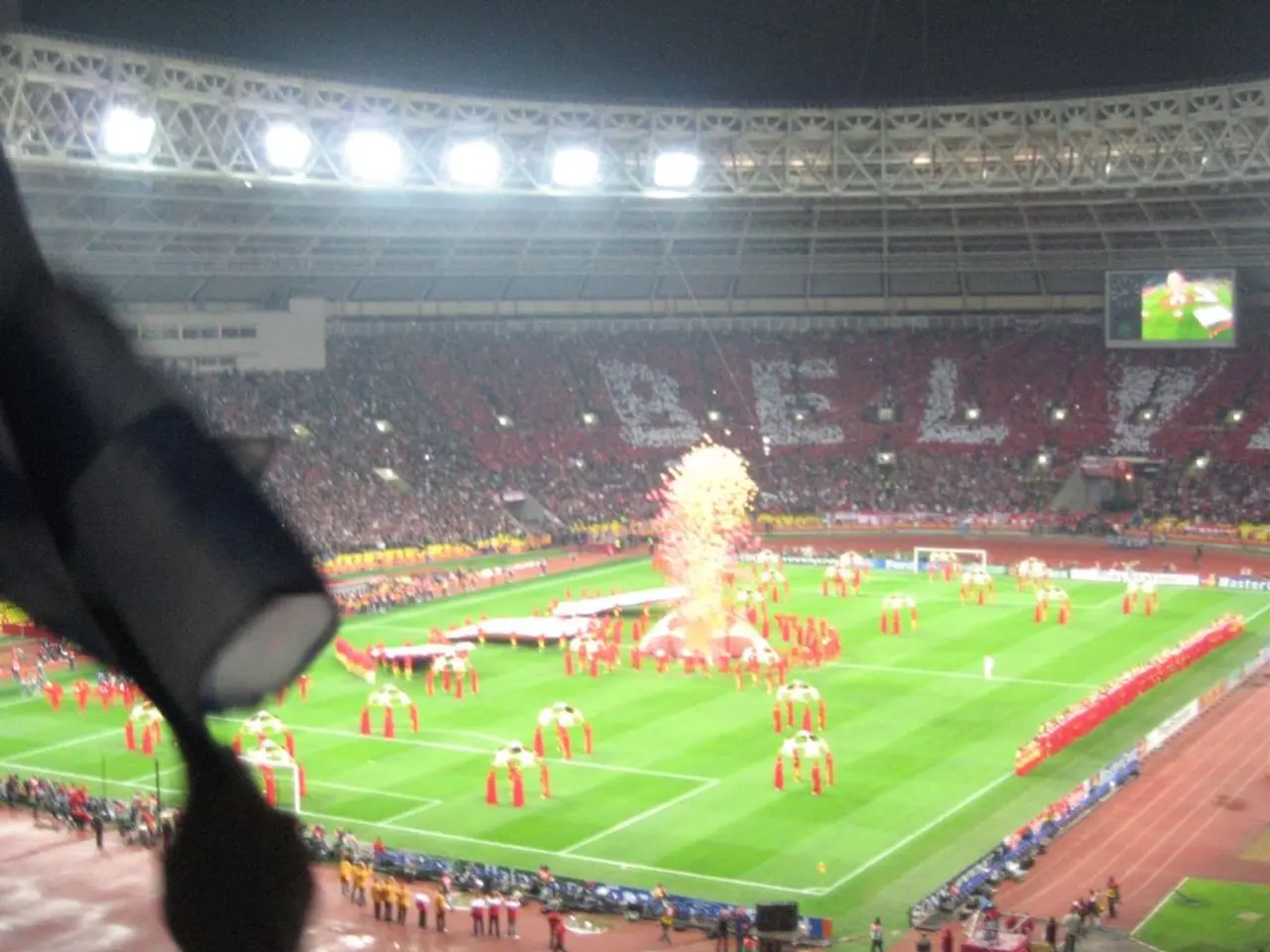Russia-Imposed Deadline by Trump Approaches, White House Readies for Potential Summit with Putin
The upcoming meeting between President Donald Trump and Russian President Vladimir Putin has created a diplomatic whirlwind, with potential implications for economic sanctions on Russia and the US-China trade negotiations.
Economic Sanctions on Russia
As the deadline for Russia to end its war in Ukraine approaches, President Trump has threatened severe economic punishment. However, the Kremlin has moved ahead with plans for talks, with Putin suggesting the United Arab Emirates as a potential summit location. Trump has stated that a summit with Putin would not be conditioned on a meeting with Ukrainian President Zelensky.
Putin has hinted at possible concessions on Ukraine's territorial control and demilitarization issues, which could open a path to reduced conflict and potentially influence future sanctions policy. Yet, Putin has not offered significant concessions or agreed to a ceasefire. The meeting grants Putin diplomatic recognition without concrete compromises, suggesting a possible diplomatic win for Russia despite ongoing sanctions pressures.
European officials are privately concerned that a summit may be just another attempt by Putin to prolong the war while avoiding new US sanctions. The EU and European capitals are pushing the US to maintain a firm stance on sanctions, with Ukraine notably absent from negotiations.
U.S.-China Trade Negotiations
While the Trump-Putin summit focuses on Russia and Ukraine, other developments suggest evolving trade relations with China. Tech firms Nvidia and AMD have agreed to pay a 15% revenue share from their chip sales in China to the US government, indicating heightened US financial involvement in trade with China under Trump’s administration.
There is also mention of an approaching expiration of a tariff pause between the US and China that may be extended if a deal is reached soon. These trade-related actions appear to be separate from the Trump-Putin talks but illustrate the broader context of US trade strategies involving China amid geopolitical maneuvering.
In conclusion, while the summit holds the promise for diplomatic progress on Ukraine that might eventually soften US sanctions on Russia, no immediate sanction changes have occurred. The US-China relationship remains complex with concurrent trade negotiations and financial arrangements, unrelated directly to the Trump-Putin summit but reflective of broader US economic policy actions.
Politics surrounding the upcoming meeting between President Trump and Russian President Putin could have significant impacts on war-and-conflicts, given the potential implications for economic sanctions on Russia. The talks could also influence policy-and-legislation, as decisions made during this meeting might shape the US-China trade negotiations.
General news outlets are monitoring the summit closely, as it has the potential to change the course of economic relations not only with Russia but also with China, given the ongoing US-China trade negotiations.







